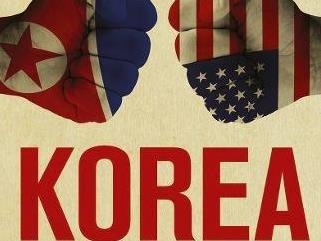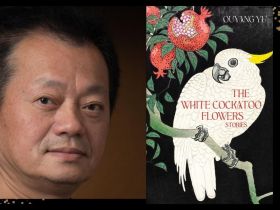Book cover image of Korea: Where the American Century Began by Michael Pembroke via Hardie Grant Books.
Michael Pembroke is a well travelled scholar and a Supreme Court judge. He is also the son of a man who fought in the Korean War and he devotes a chapter in the book to some of his father’s story. In an overview of the history of the Korean peninsula, Pembroke reminds us that for many centuries it was a place of continuous civilisation with a culture that was neither Chinese nor Japanese. It had its share of foreign invasions but survived to the end of the 20th century when the Japanese invaded the country and subjected it to a savage period of colonial rule until it was liberated by the Americans in 1945. Unfortunately, the Americans decided it was in their best interests to partition the Korean peninsula. The book deals with the period from 1945 onward in compelling detail.
Pembroke documents the many tragic mistakes made by a number of American presidents, their advisers and the American military – mistakes that largely led to the present situation. He leaves the reader in no doubt that what the Korean people wanted after the end of the second world war was a unified country free of foreign occupation. At that time, ‘Korea was indivisible, whether one looked at [it] from an economic, political or historical point of view.’
What Korea got instead of unification was an American invasion leading to a horrendous war between the north – supported by Russia and China – and the south – supported by America and, with some reluctance, by 15 other countries including Australia. Pembroke artfully describes how Korea thus became a country arbitrarily divided at the 38th parallel, which then developed into the current North and South Korea dichotomy that endangers the whole world.
Pembroke points out that America’s unwillingness to support the unification and independence of Korea in the post-WWII period sprang from pervasive anti-communist sentiments in the west at that time. President Truman believed that Russia and China wanted to dominate the free world and that this had to be prevented by American military intervention. Much of the book is devoted to how this played out, describing how Truman’s decision-making rested on inaccurate and false intelligence as well as on the advice of powerful men like General MacArthur who favoured outright war with China and saw the conquest of Korea as a step in that direction.
To convey how the Korean war has fostered the present attitudes in North Korea, Pembroke details the atrocities committed during that war. He describes the almost complete destruction of North Korea by carpet-bombing over a more than three-year period, during which peace negotiations were in progress. General LeMay, who was in charge of the bombing, boasted that ‘we killed off over a million civilian Koreans and drove several millions from their homes’. He later conceded that ‘I suppose if I had lost the war, I would have been tried as a war criminal’.
None of this is put forward as a justification of the current North Korean regime, of which Pembroke says:
‘It is harsh, authoritarian, repressive and secretive, and its continuing economic and structural problems are largely of its own making. Much of its retardation has been self-inflicted – a direct result of the huge and disproportionate expenditure on its military, its socialist economic principles and the greed, graft and moral obloquy of the ruling elite.’
Such quotes demonstrate some of the fascinating detail and flavour of Korea, and show the depth of Pembroke’s research, but they are no substitute for reading the book, which also includes more than 50 pages of notes and other material to facilitate further reading. (In addition, the book has an excellent index.) Ideally, this book should be read, studied and absorbed by anyone interested in world affairs, but above all by anyone who wishes to understand the dilemma that is now facing the world with a corrupt regime seeking to protect itself against a former merciless attacker.
Rating: 5 out of 5 stars
Korea: Where the American Century Began
By Michael Pembroke
ISBN: 9781743793930
Format: Paperback
Pages: 368
Dimensions: 23cm x 15cm
Publisher: Hardie Grant Books
Published: 1 February 2018





